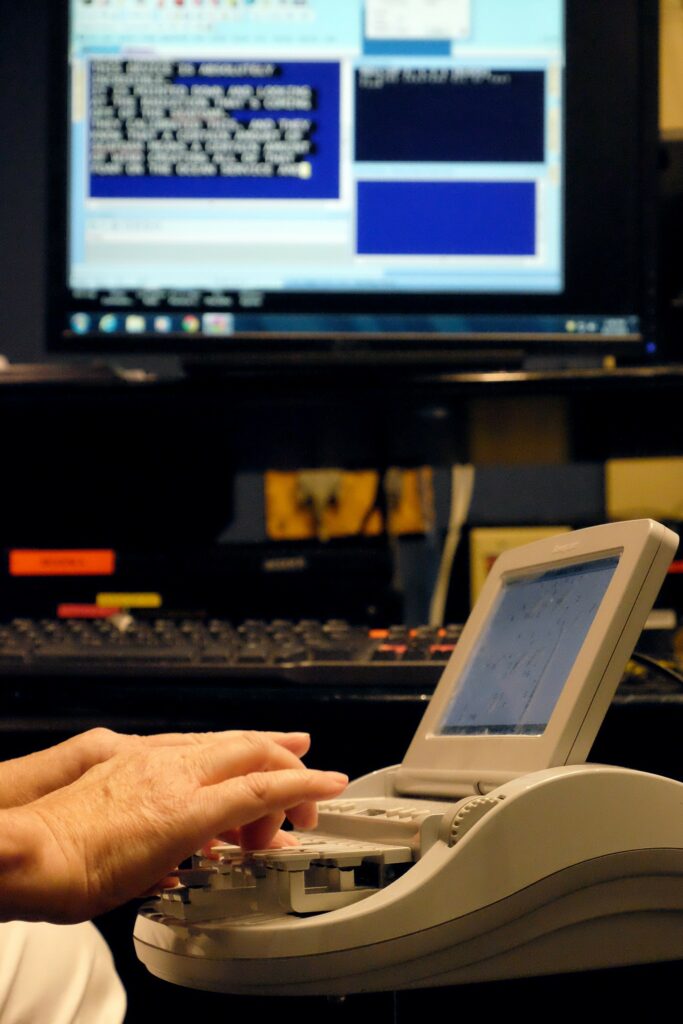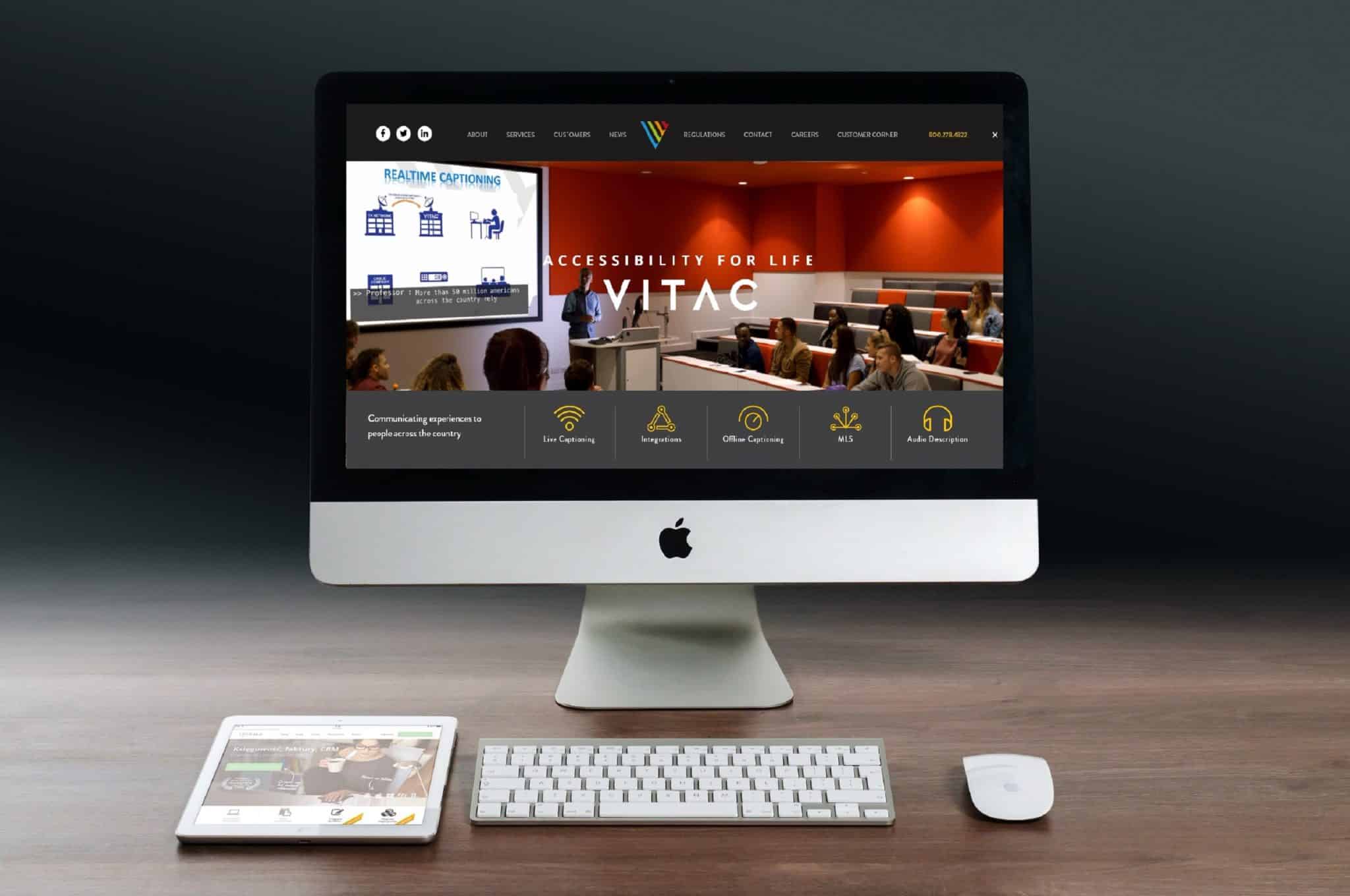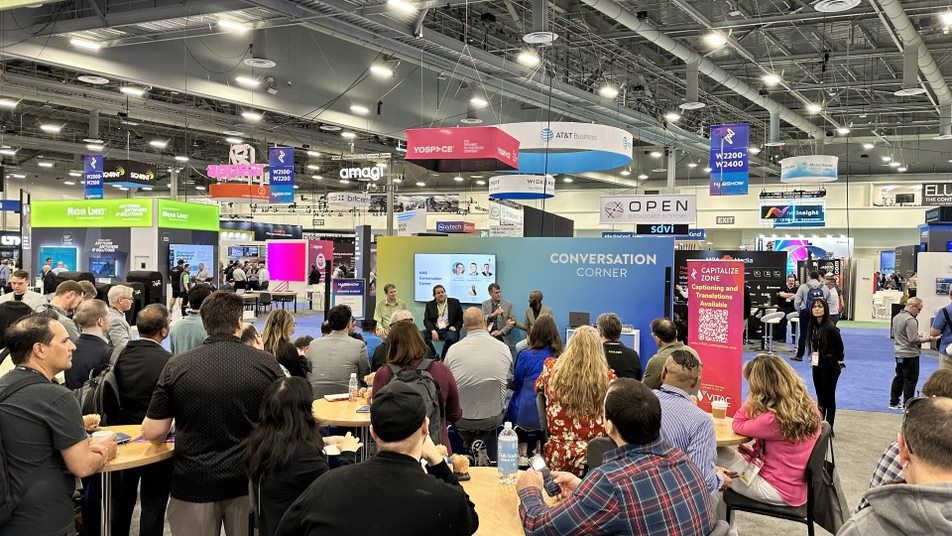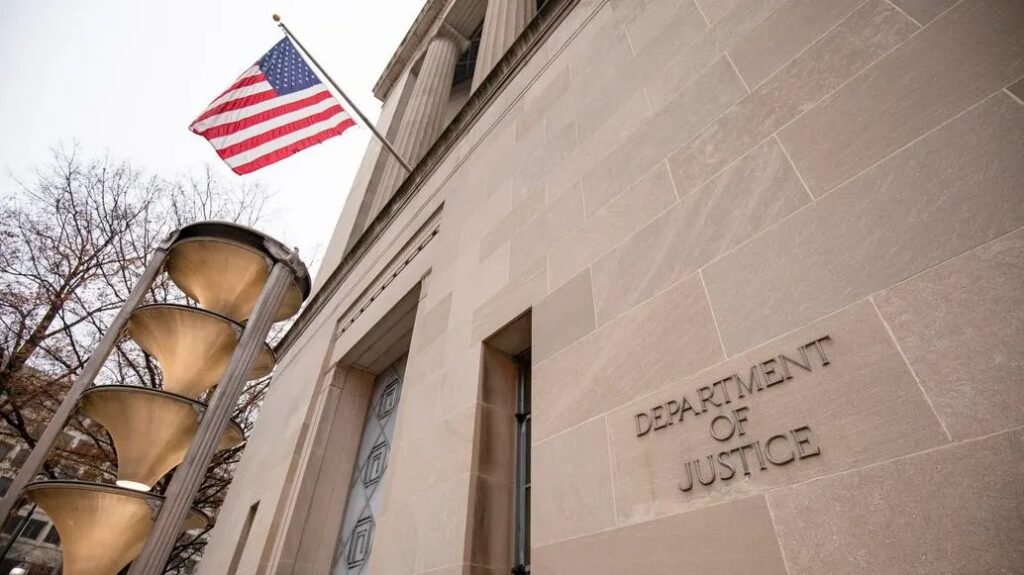Turn on the news, go online, or open a newspaper (that’s still a thing, right?) and you’ll find stories about people, communities, and organizations all pitching in to help each other in the face of the coronavirus pandemic.
And our VITAC captioners are no different.
Our professional, realtime captioners create captions for a variety of live television programs, including local, national, and cable news programs as well as breaking news updates.
Often on these shows, the dialogue between newscasters can be fast and furious. And as has been the case with coronavirus coverage over this past month, newscasters quickly introduce new speakers, update reports with the names of public health and safety officials, and pepper scientific terms and jargon throughout the broadcast. It’s tough enough just trying to understand it all, let alone transcribing everything that’s being said.
 But that’s the (sometimes difficult) job of realtime captioners – taking all that audio information that flies by a mile a minute and immediately translating that into text for an audience of nearly 50 million Americans in the deaf and hard-of-hearing community.
But that’s the (sometimes difficult) job of realtime captioners – taking all that audio information that flies by a mile a minute and immediately translating that into text for an audience of nearly 50 million Americans in the deaf and hard-of-hearing community.
And one step captioners can take to help ensure top-notch, accurate captions is to thoroughly prepare for each individual job.
VITAC captioners do their research before each broadcast, looking up key names and terms that they anticipate will pop up during the program, and keeping abreast of current news and events. They check multiple sources, including national news outlets, the station they are prepping for, and social media pages, just to name a few. (Read here to learn about the prep work that goes into bringing an award show to the television screen.)
They then share that information – the spelling of tricky scientific words, the names of U.S. governors, and any other helpful advice they have – with their colleagues who also might be working on similar programs to help ease the research load.
Not surprisingly, a lot of the recent research and shared resources have centered around coronavirus terms and information, including the names of government officials and emergency administrators, pharmaceutical companies, and unusual words and places that might show up during broadcasts such as the Javits Center, Lombardy, Italy, SARS-CoV-2, or TALF’s Term Asset-Backed Securities Loan Facility.
Captioners can send questions on spellings to VITAC’s Captioner Management team, who will verify with our Quality Assurance department to make sure everyone is on the same page. We also post updated information on our learning management system each day for all captioners to access.
Though it’s awesome that our captioners are so willing to share what they have found with their fellow captioners, we do ask everyone to make sure that the information they are using is accurate and still do some research on their own.
We are proud of the incredible work that all of our captioners (and schedulers, coordinators, engineers, and others) do day-in and day-out. Our employees always come together in difficult times to help each other while steadfastly providing captions for those who rely on them.
Prepping for all events
One thing is certain – the news changes each day, sometimes hour to hour – and the best way to make sure captioners (and the viewers at home) are in the know is to research and prep for each event. It’s no understatement to say that accurate captions during emergencies are essential and potentially life-saving (think tornado warnings or active shooter alerts).
But prep isn’t exclusive to captioning TV programs. The same prep work also goes into captioning a variety of other events, including business meetings/teleconferences, academics, and conferences.
* For corporate board meetings, the client typically will provide the prep materials, including meeting topic, the names of participants, and who is leading the discussion.
* For classroom lectures, captioners often will get a class syllabus in advance or can go online to find class notes and terms that might be discussed.
* For business conferences, captioners can get a program or schedule online, which typically includes speaker bios, keynote speakers, and information on specific sessions.




